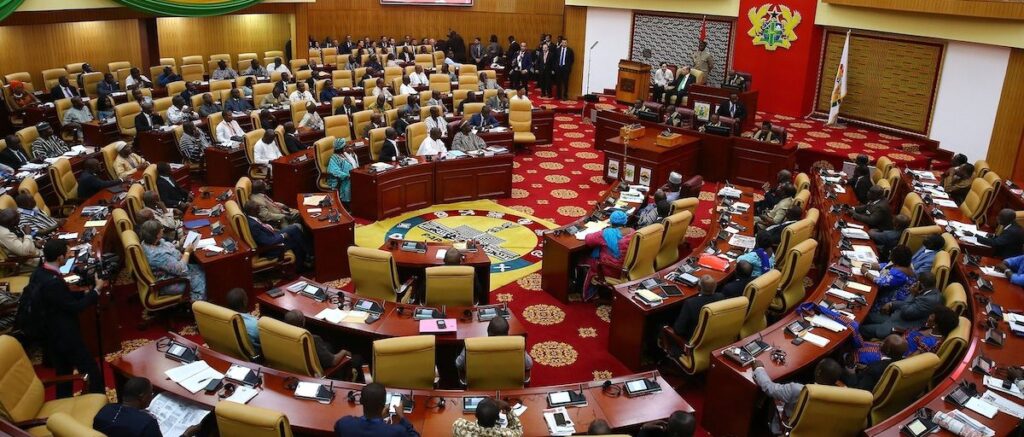Ghana Parliament passes Affirmative Action Gender Equity Bill 2024
 Parliament on Tuesday passed the Affirmative Action Gender Equity Bill 2024.
Parliament on Tuesday passed the Affirmative Action Gender Equity Bill 2024.
The Bill’s goal is to effectively address the country’s social, cultural, economic, and political gender imbalances, which stem from historical discrimination against women and the persistence of patriarchal socio-cultural systems and norms.
The Bill also aims to promote gender equity in both the public and private sectors.
Speaking on the passage in Parliament, Mr Alban Bagbin, the Speaker, said: “Honourable members, the ‘ayes’ have it. The Affirmative Action Gender Equality Bill 2024 now the Affirmative Action Gender Equity Act duly read the third time and passed.”
Meanwhile, Mr Haruna Iddrisu, the National Democratic Congress (NDC) Member of Parliament (MP) for Tamale South, had previously expressed his opposition to the Affirmative Action Bill.
He contended that the Bill’s content did not specifically addressed issues relevant to Ghana, but rather focused on matters in other countries.
Mr Iddrisu expressed his concern during the 15th MTN Pulse Africa Transform Summit in Kumasi.
He, however encouraged women to aspire, but also manage their ambitions.
Ghana passed the Affirmative Action Act in 1960, allowing ten women to represent the country’s regions in the legislature.
The law acknowledged that women’s political participation was an essential component of democratic dialogue and social cohesion.
Women’s representation in all policy-making spaces in Ghana is less than the United Nations (UN) threshold of 30 per cent.
Women’s representation in Ghana’s Parliament currently stands at 14.5 per cent, while it is less than five per cent in the District Assembly System.
The situation is identical in terms of ministerial, ambassadorial, and board appointments made by the government.
Women’s effective contributions to Ghana’s development are nearly impossible because of their persistent under-representation in these key decision-making spaces.
Despite Ghana’s signing on to various international protocols and conventions, pledging 30 to 40 per cent representation of women, these figures remain extremely low.
Source: GNA
